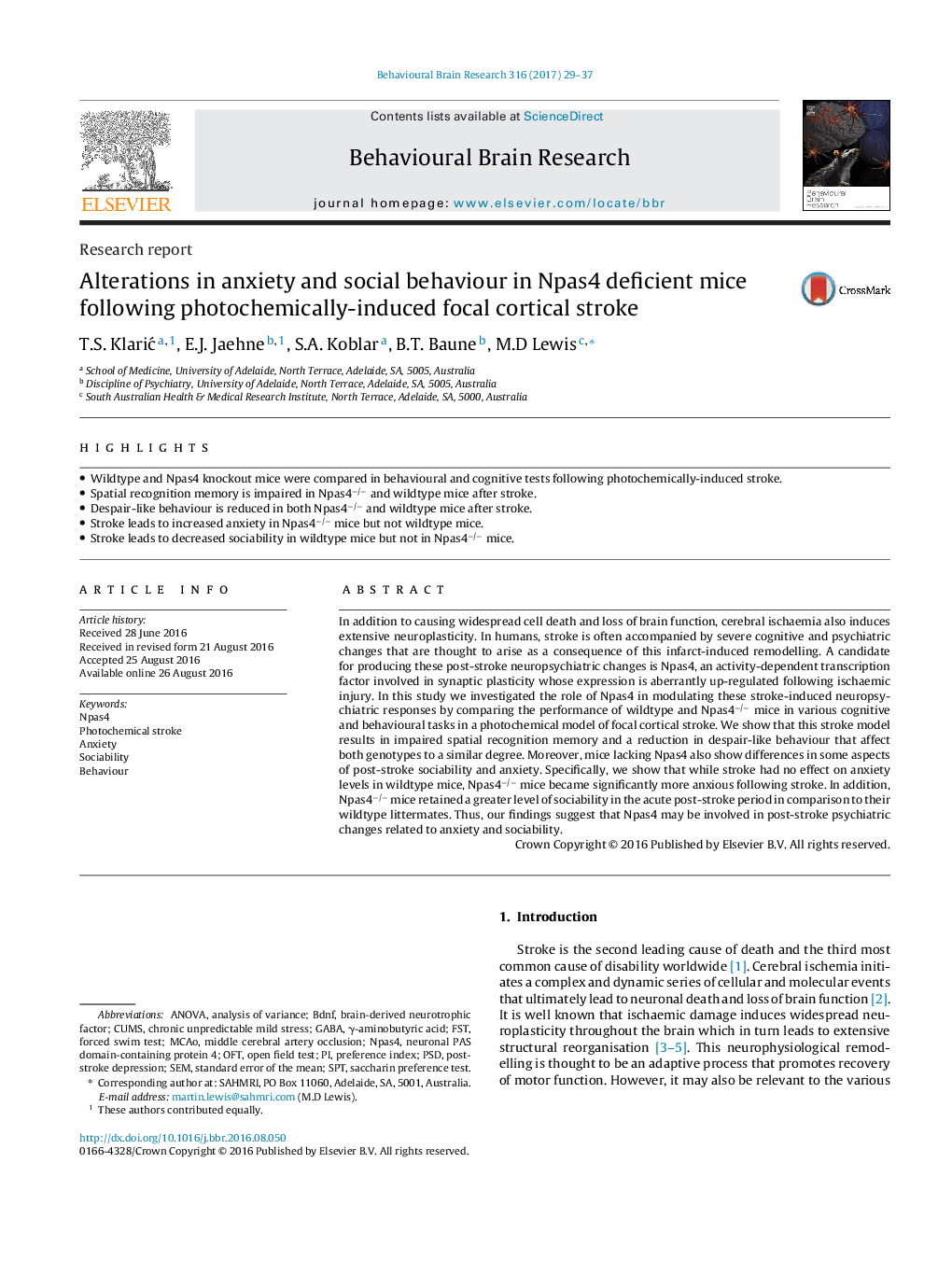| Article ID | Journal | Published Year | Pages | File Type |
|---|---|---|---|---|
| 4311996 | Behavioural Brain Research | 2017 | 9 Pages |
•Wildtype and Npas4 knockout mice were compared in behavioural and cognitive tests following photochemically-induced stroke.•Spatial recognition memory is impaired in Npas4−/− and wildtype mice after stroke.•Despair-like behaviour is reduced in both Npas4−/− and wildtype mice after stroke.•Stroke leads to increased anxiety in Npas4−/− mice but not wildtype mice.•Stroke leads to decreased sociability in wildtype mice but not in Npas4−/− mice.
In addition to causing widespread cell death and loss of brain function, cerebral ischaemia also induces extensive neuroplasticity. In humans, stroke is often accompanied by severe cognitive and psychiatric changes that are thought to arise as a consequence of this infarct-induced remodelling. A candidate for producing these post-stroke neuropsychiatric changes is Npas4, an activity-dependent transcription factor involved in synaptic plasticity whose expression is aberrantly up-regulated following ischaemic injury. In this study we investigated the role of Npas4 in modulating these stroke-induced neuropsychiatric responses by comparing the performance of wildtype and Npas4−/− mice in various cognitive and behavioural tasks in a photochemical model of focal cortical stroke. We show that this stroke model results in impaired spatial recognition memory and a reduction in despair-like behaviour that affect both genotypes to a similar degree. Moreover, mice lacking Npas4 also show differences in some aspects of post-stroke sociability and anxiety. Specifically, we show that while stroke had no effect on anxiety levels in wildtype mice, Npas4−/− mice became significantly more anxious following stroke. In addition, Npas4−/− mice retained a greater level of sociability in the acute post-stroke period in comparison to their wildtype littermates. Thus, our findings suggest that Npas4 may be involved in post-stroke psychiatric changes related to anxiety and sociability.
